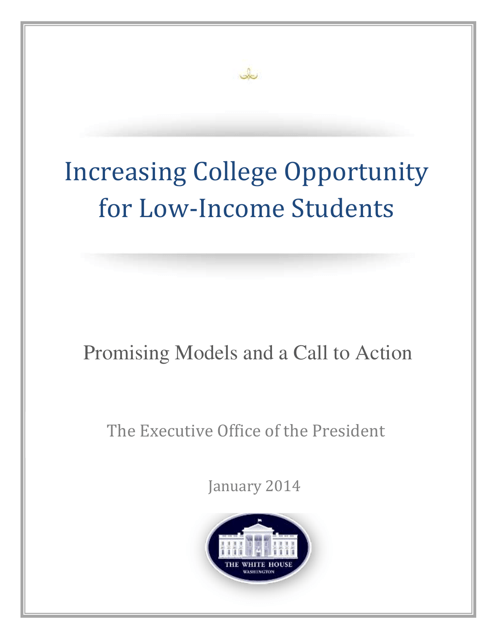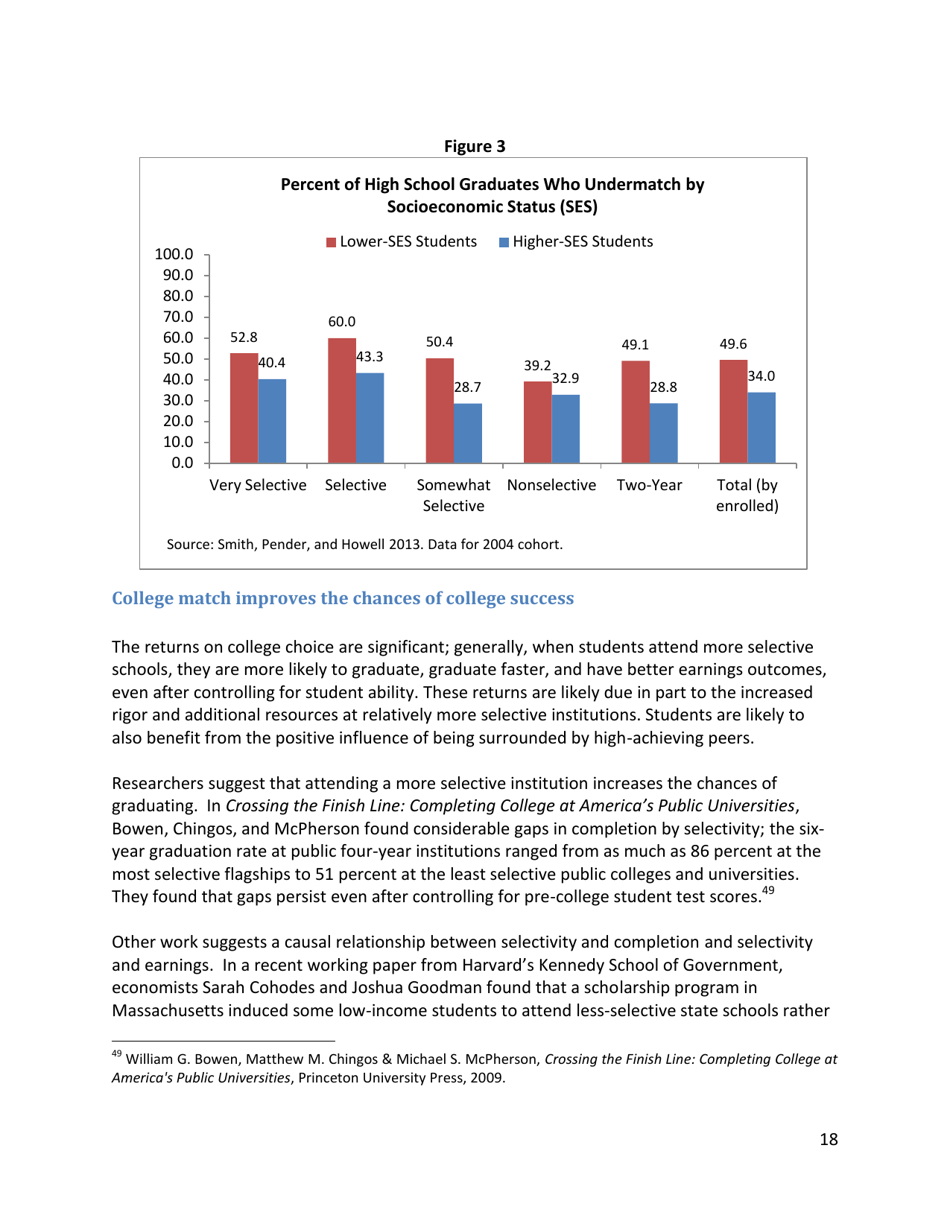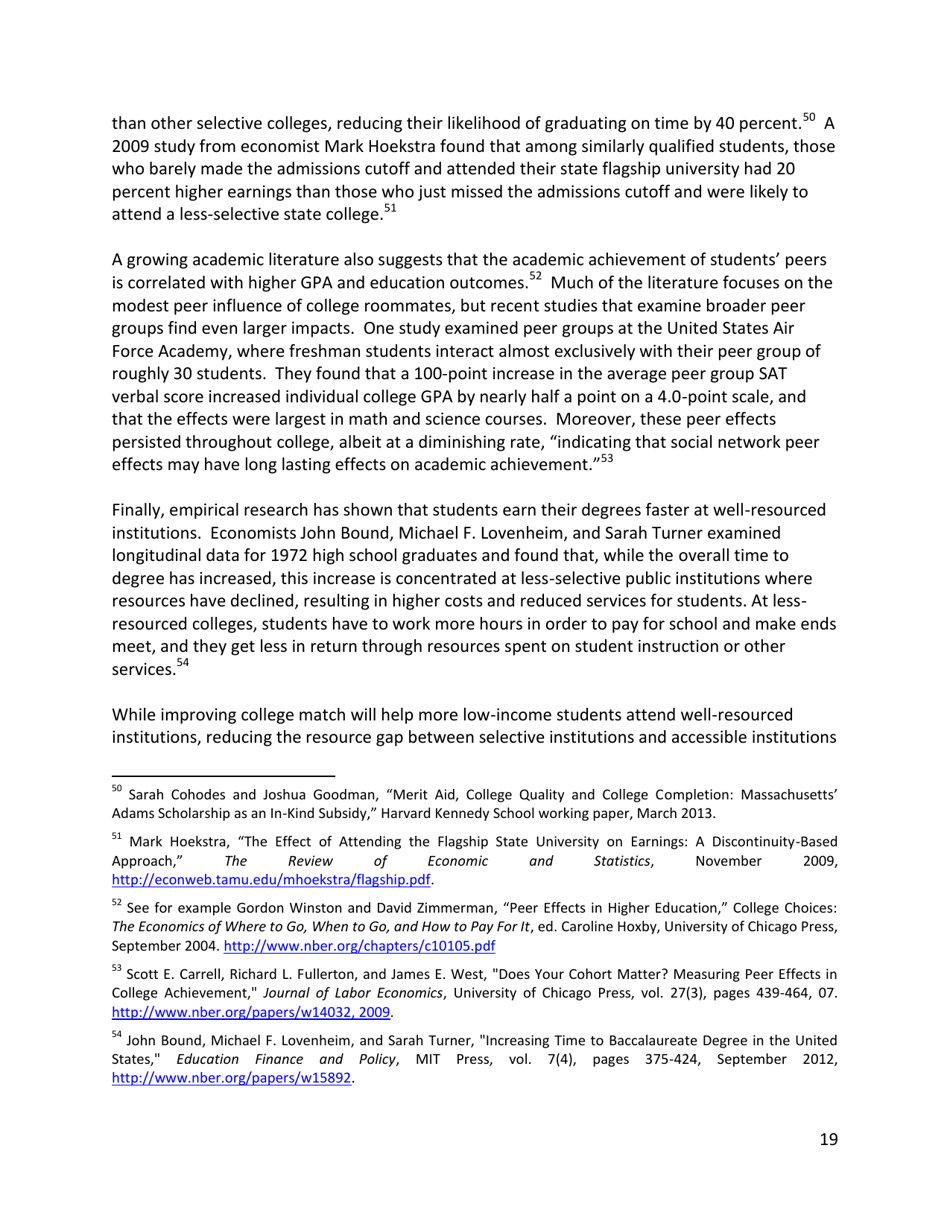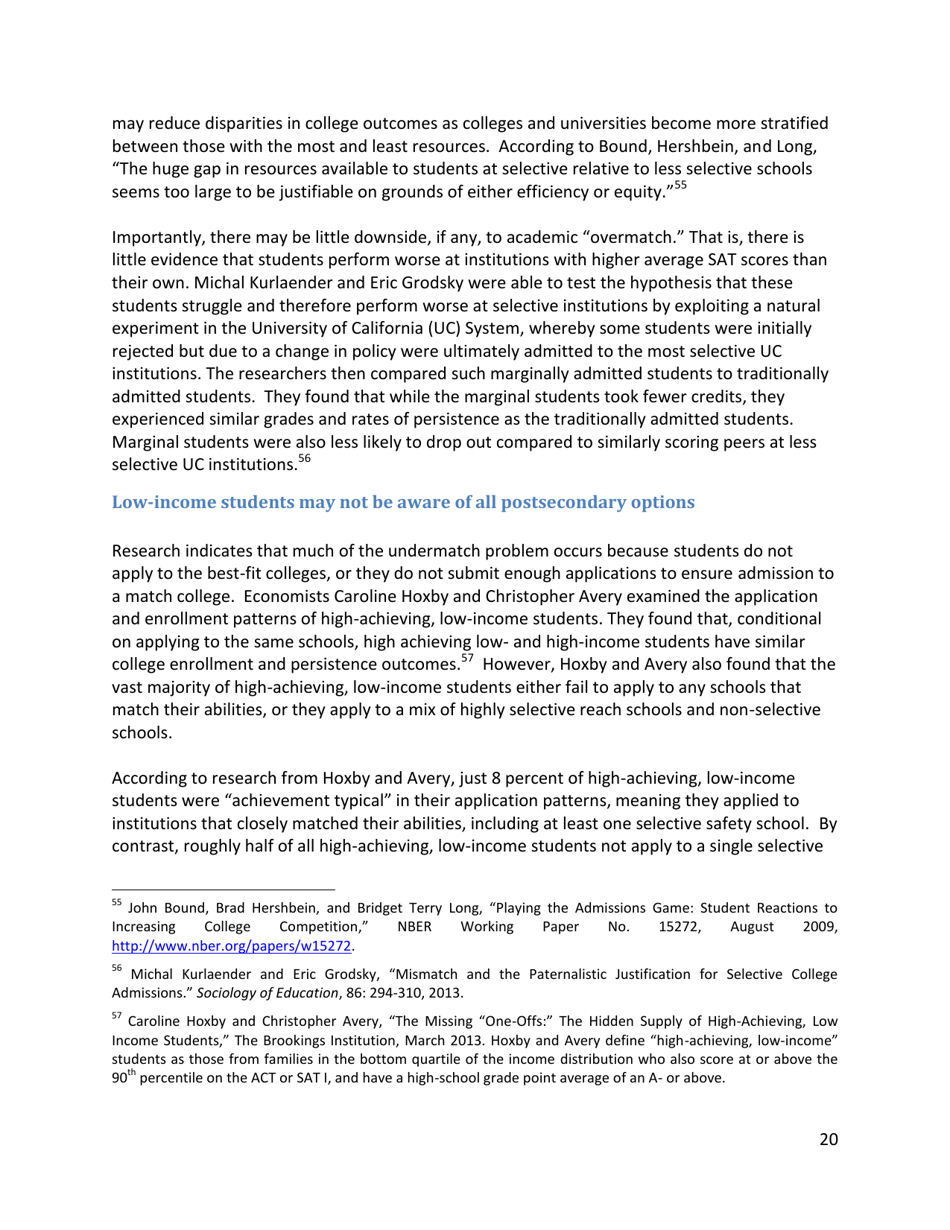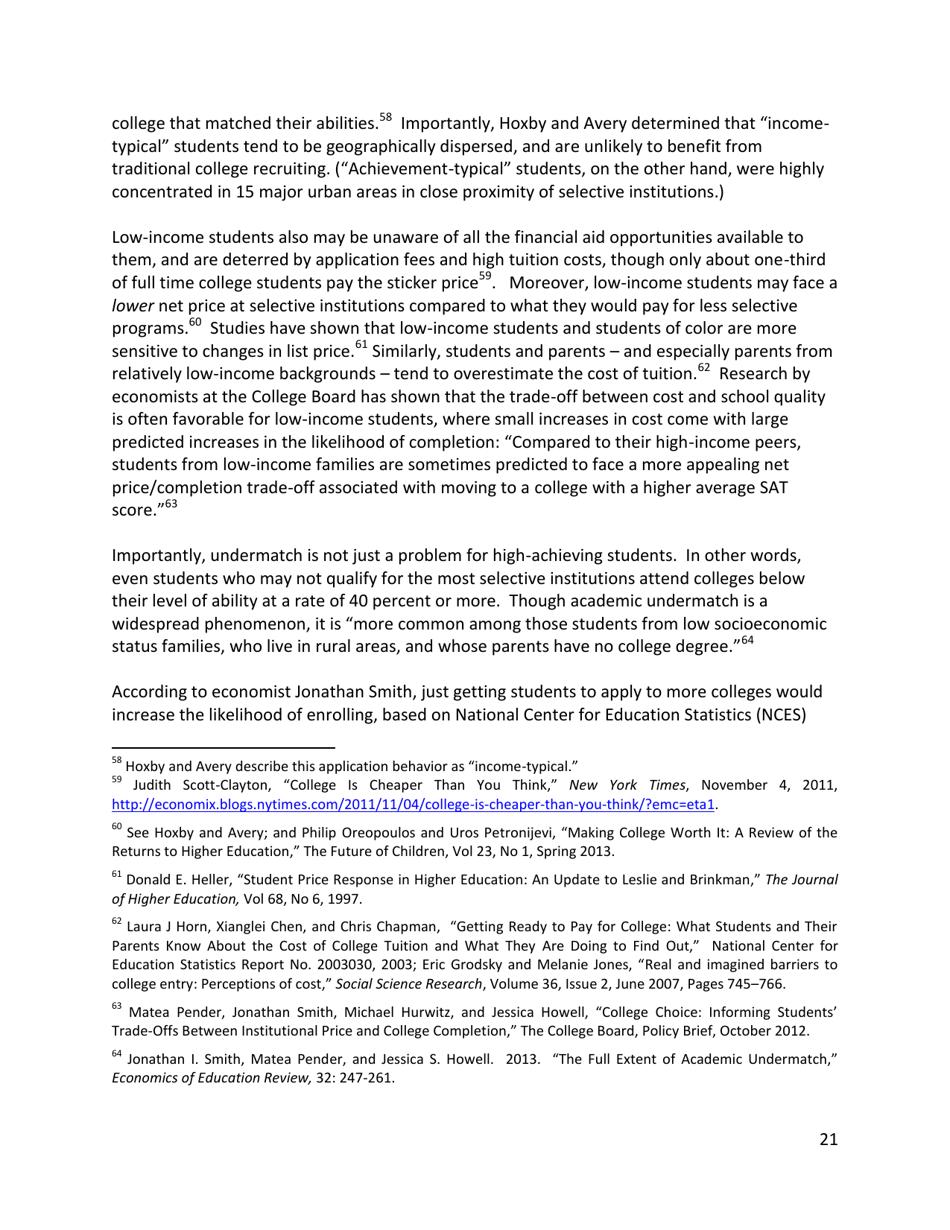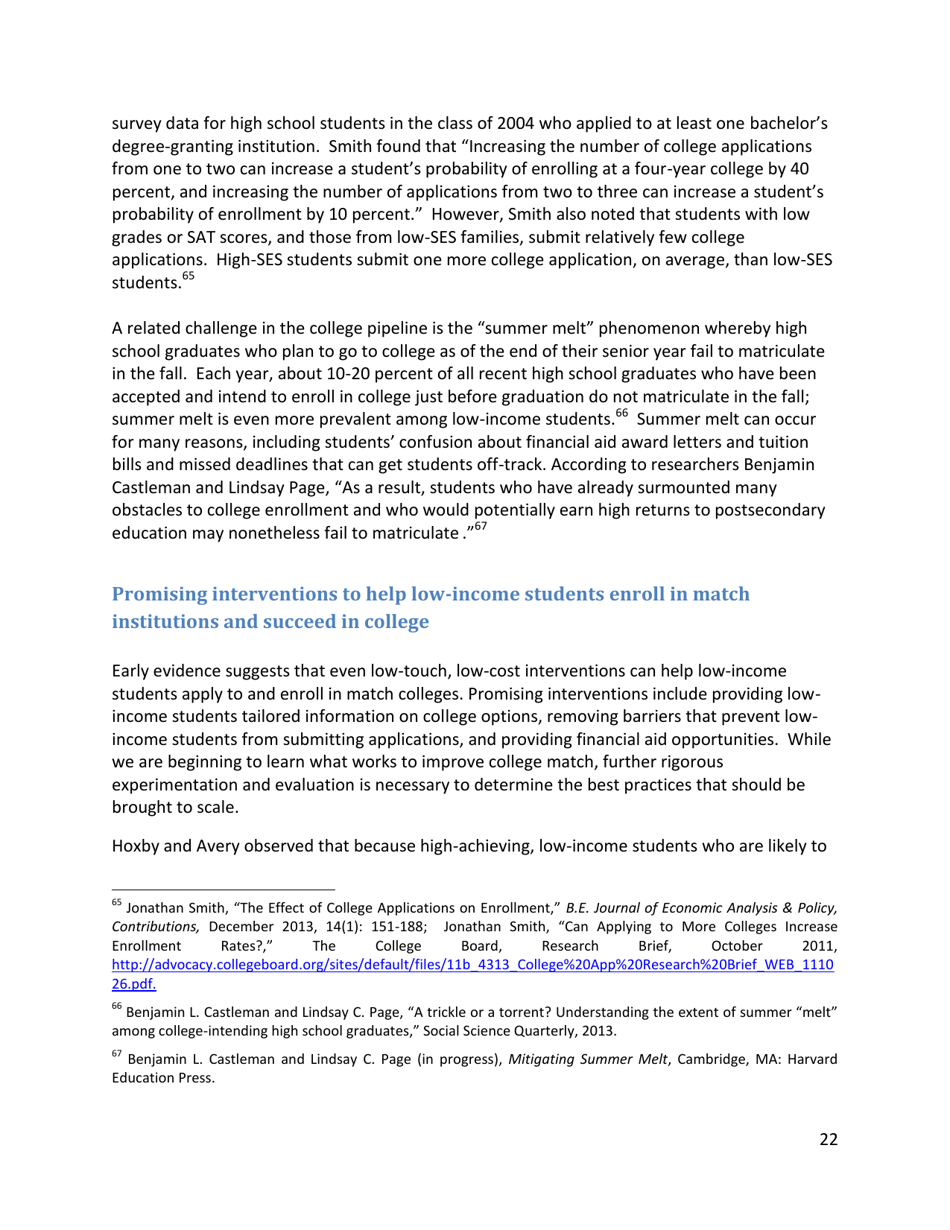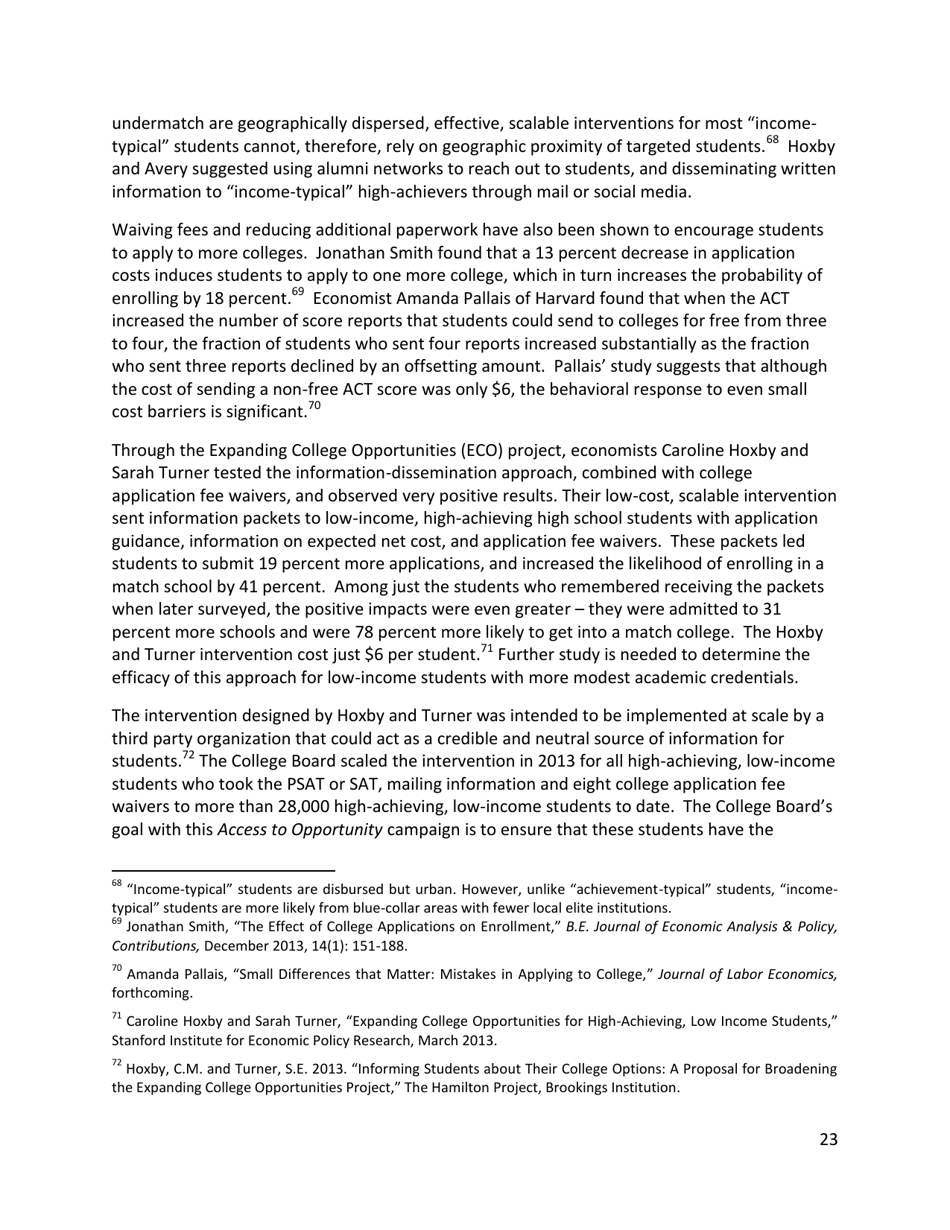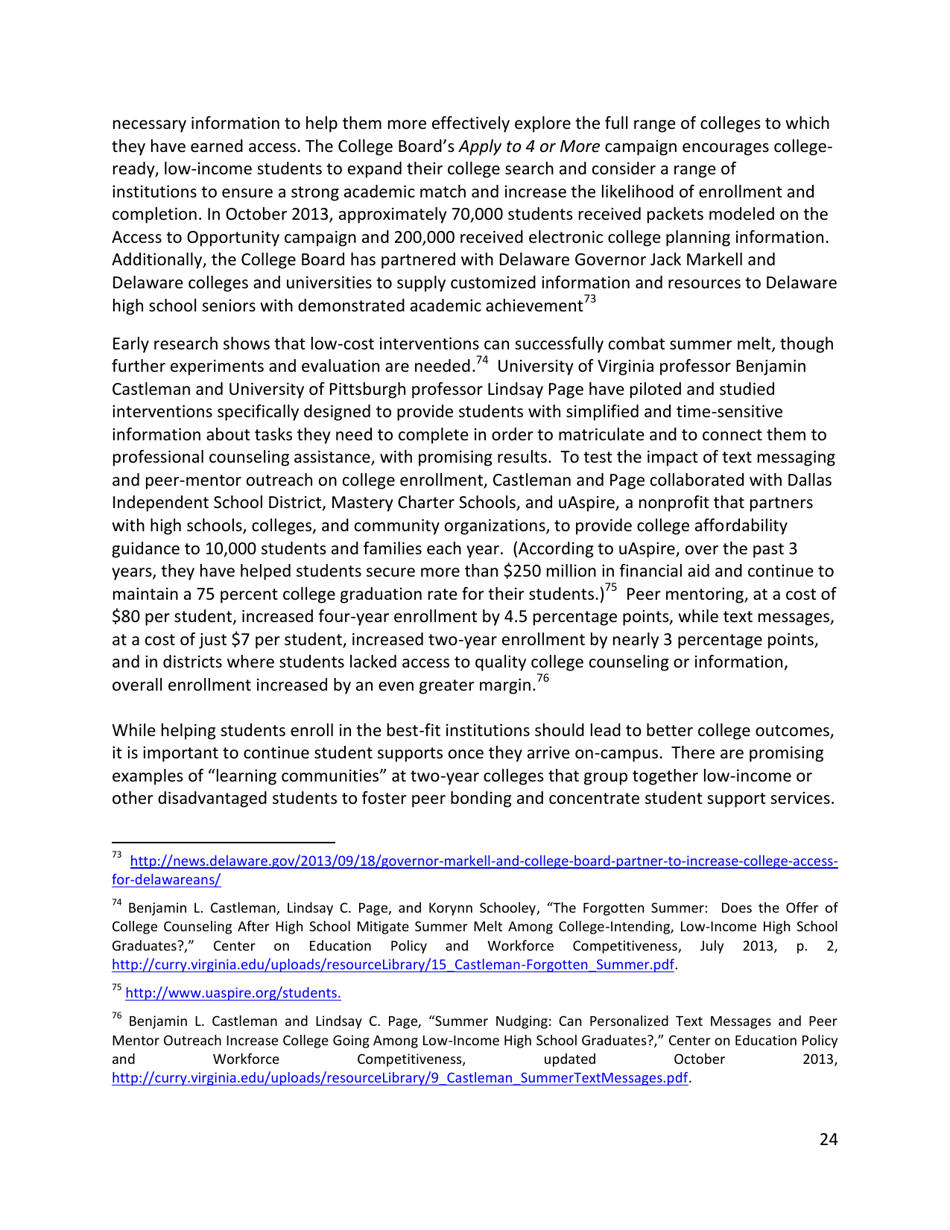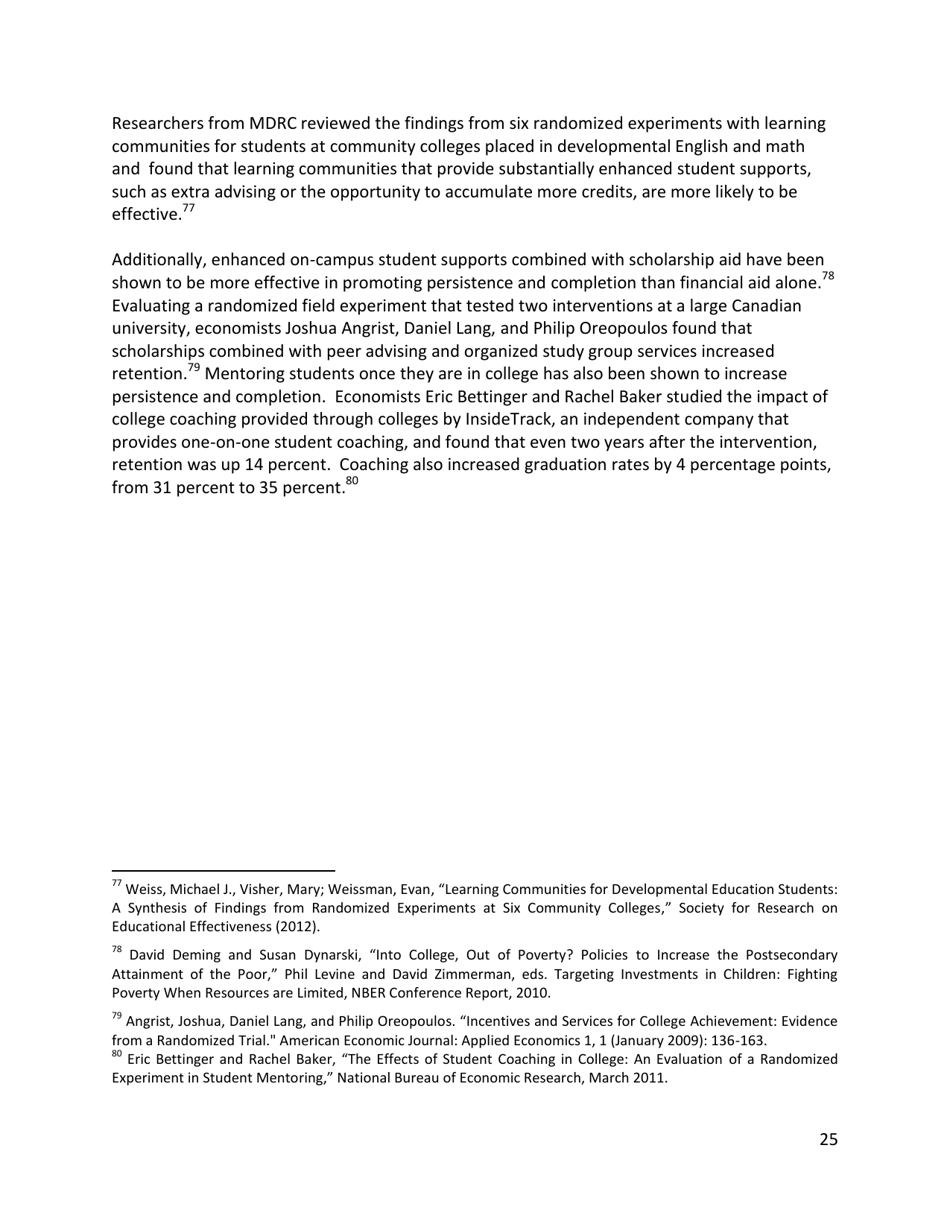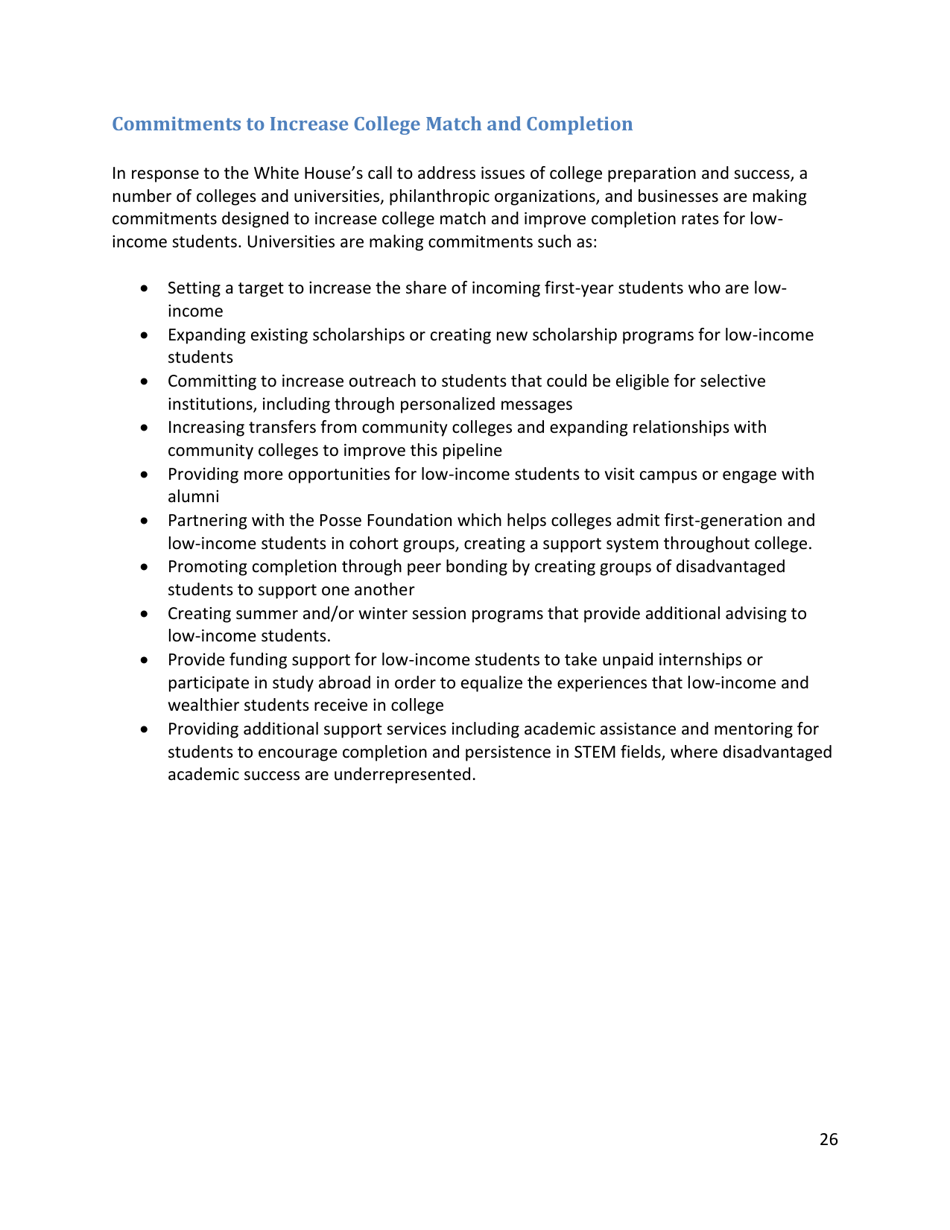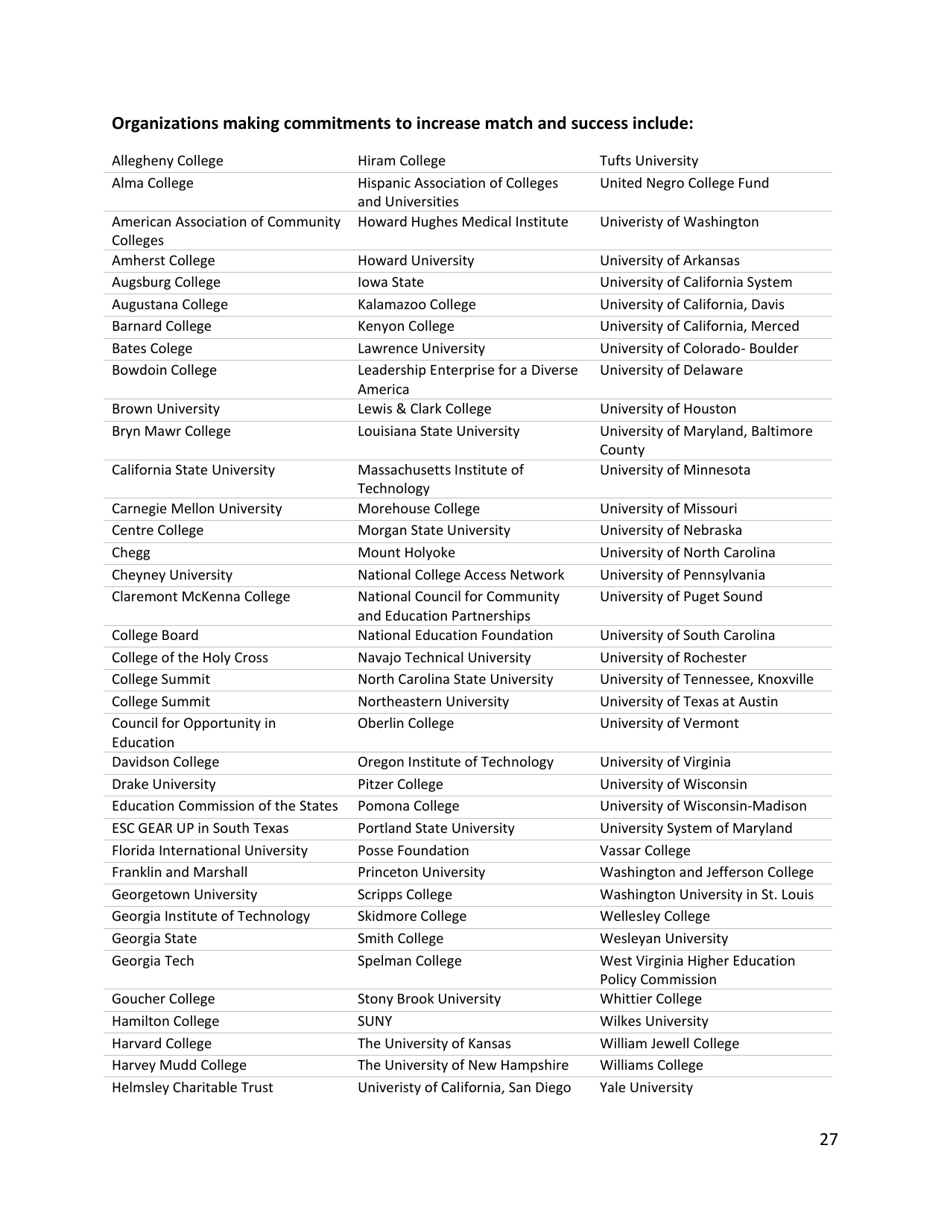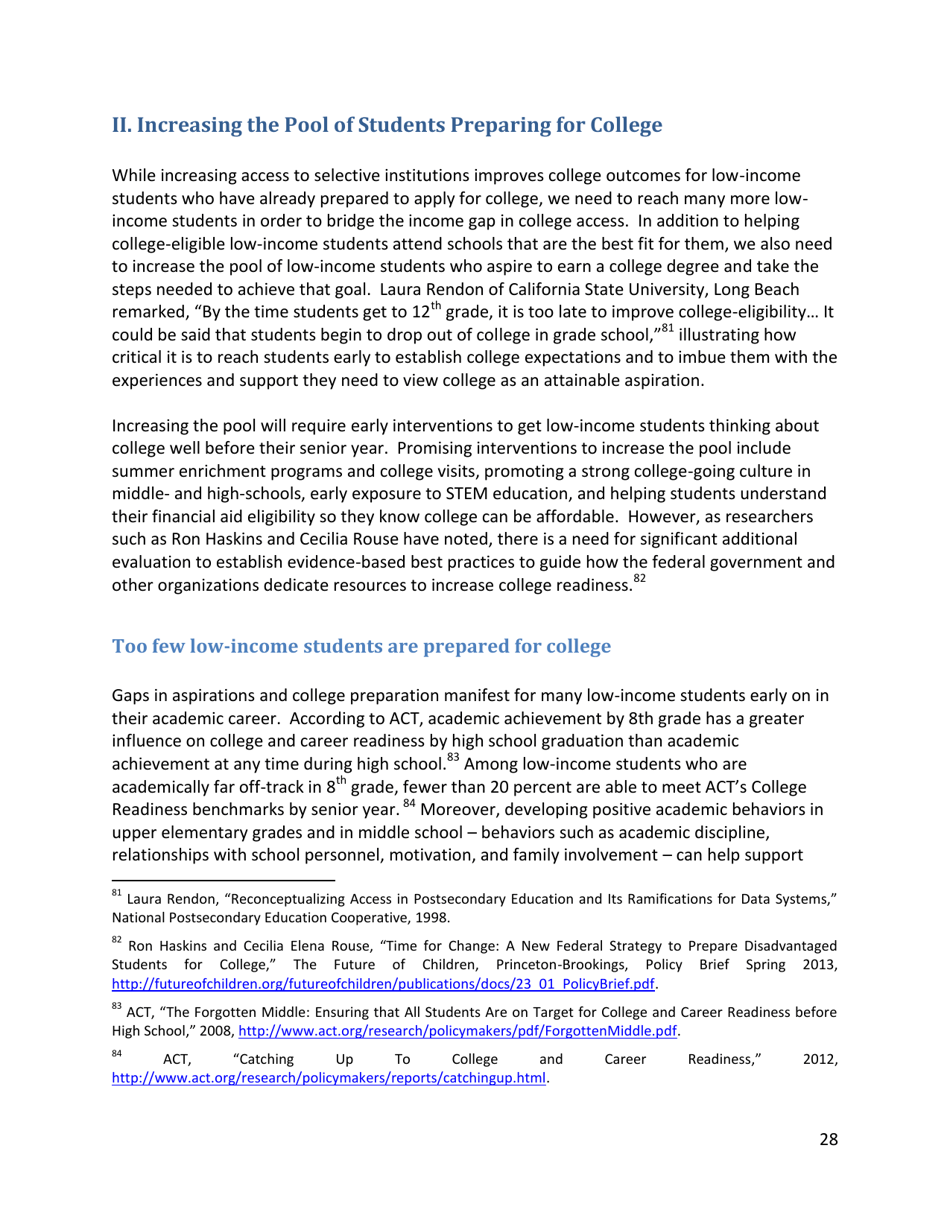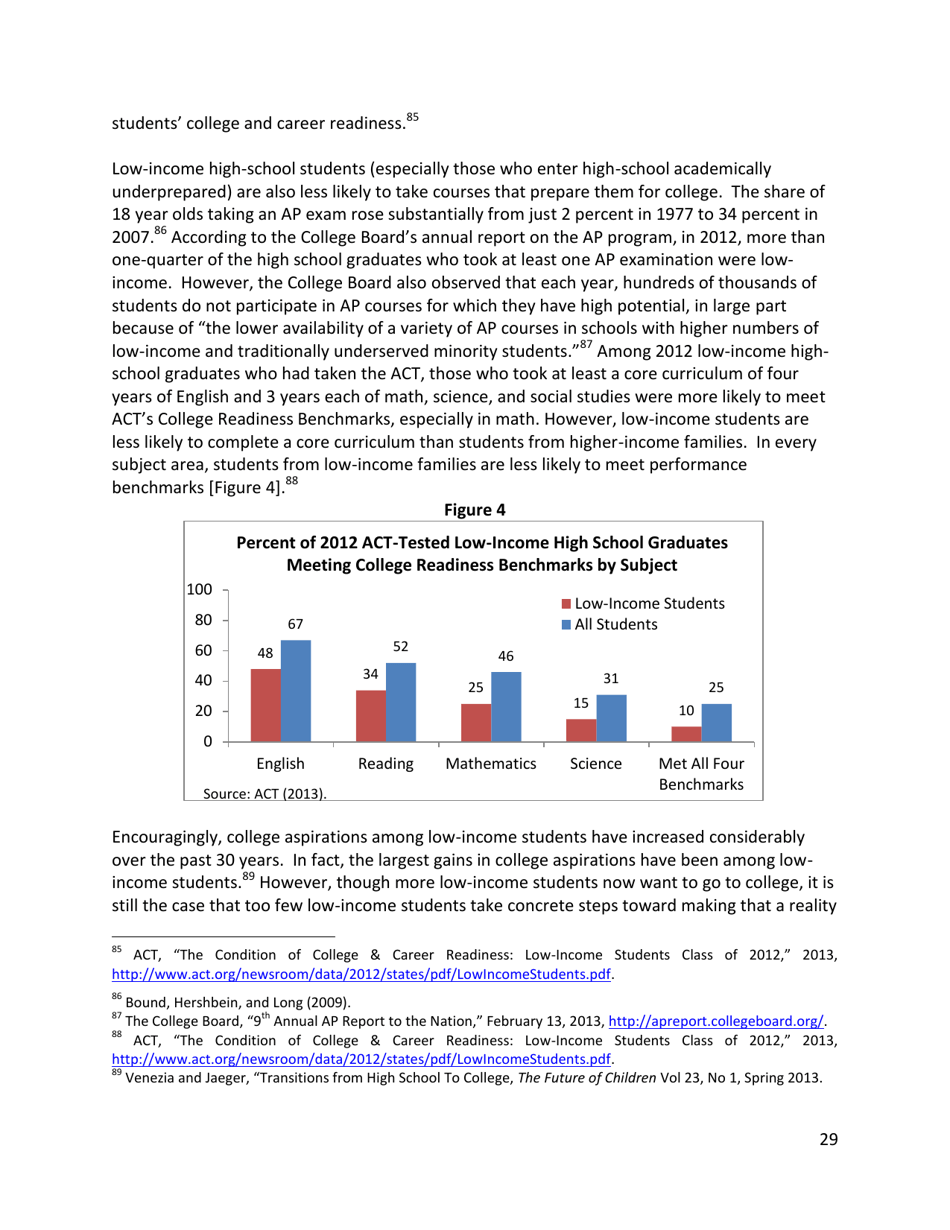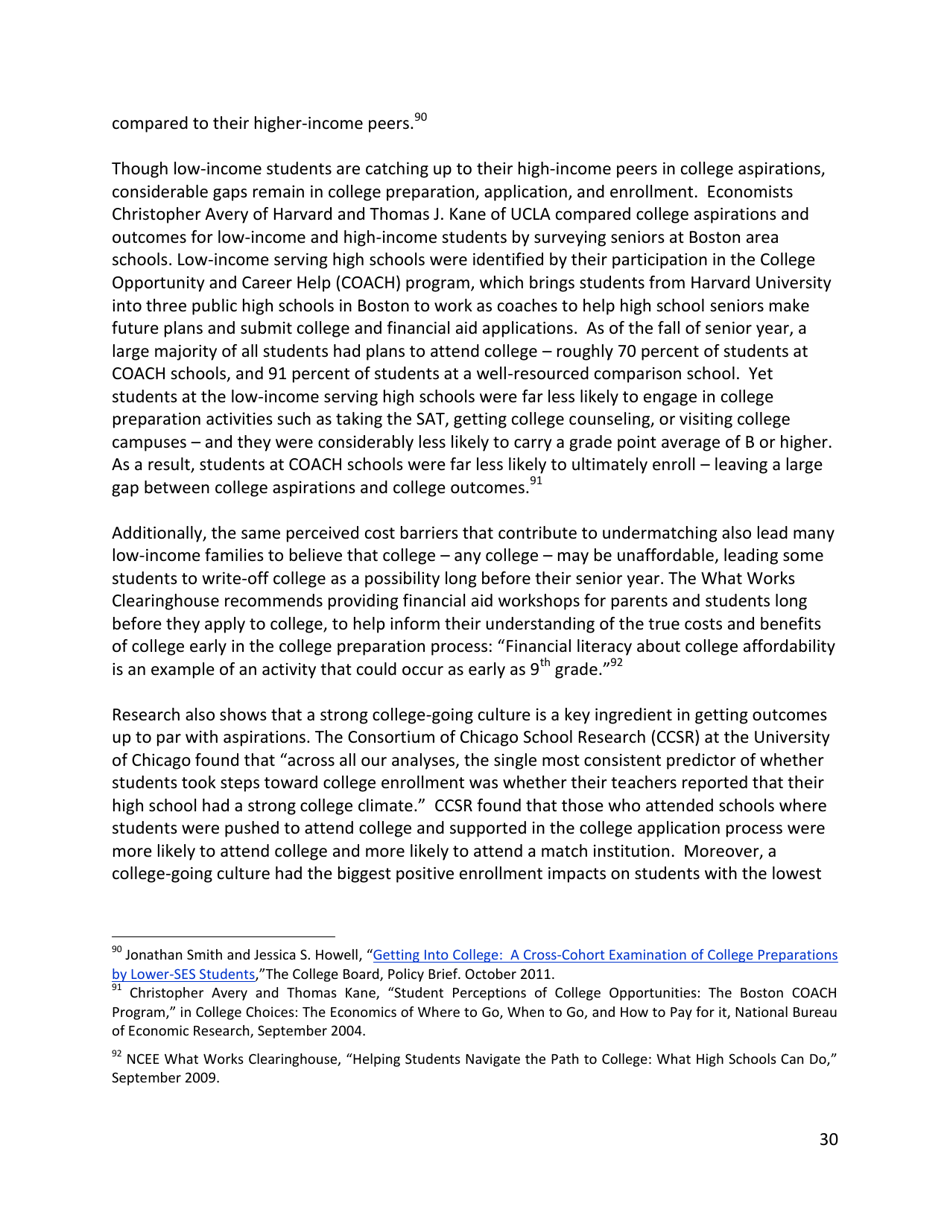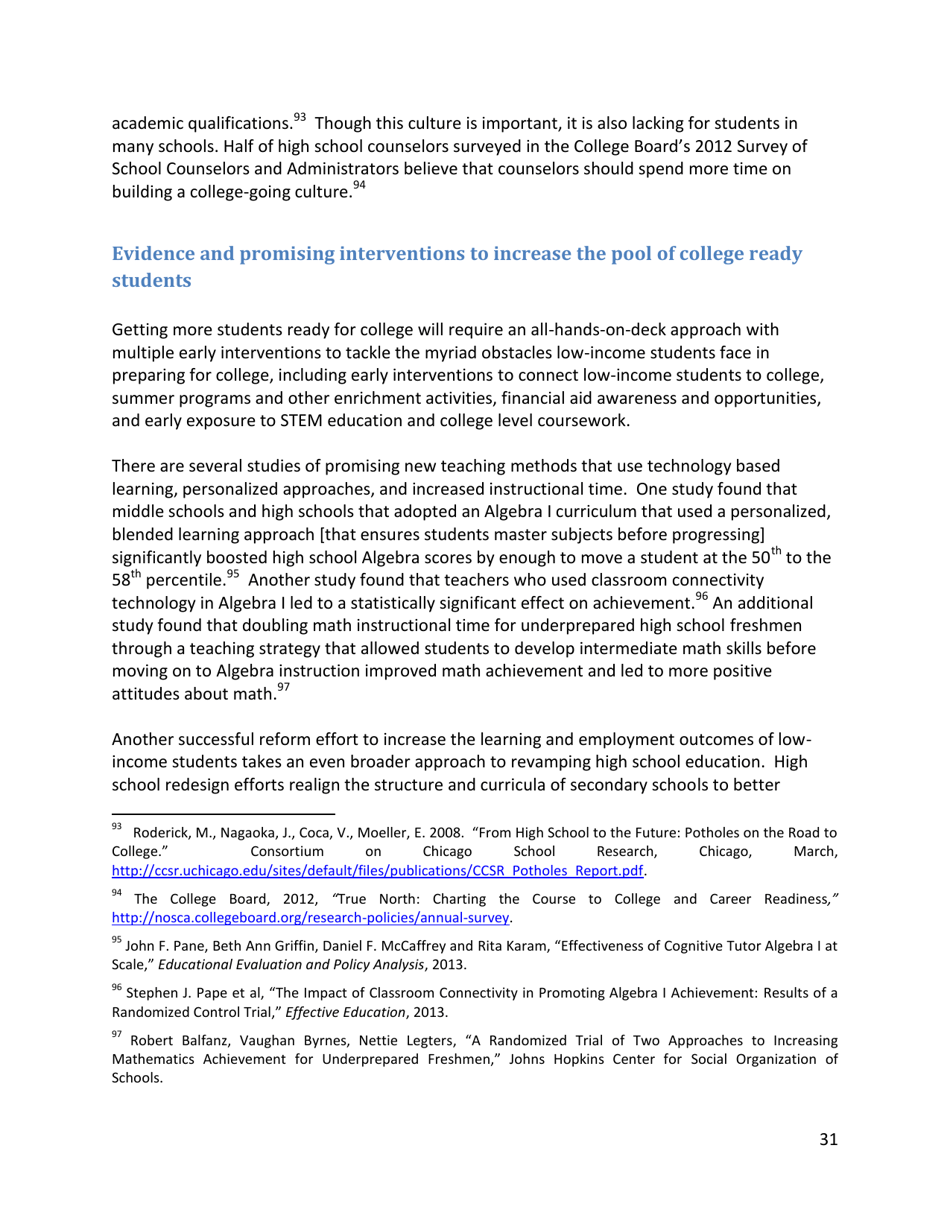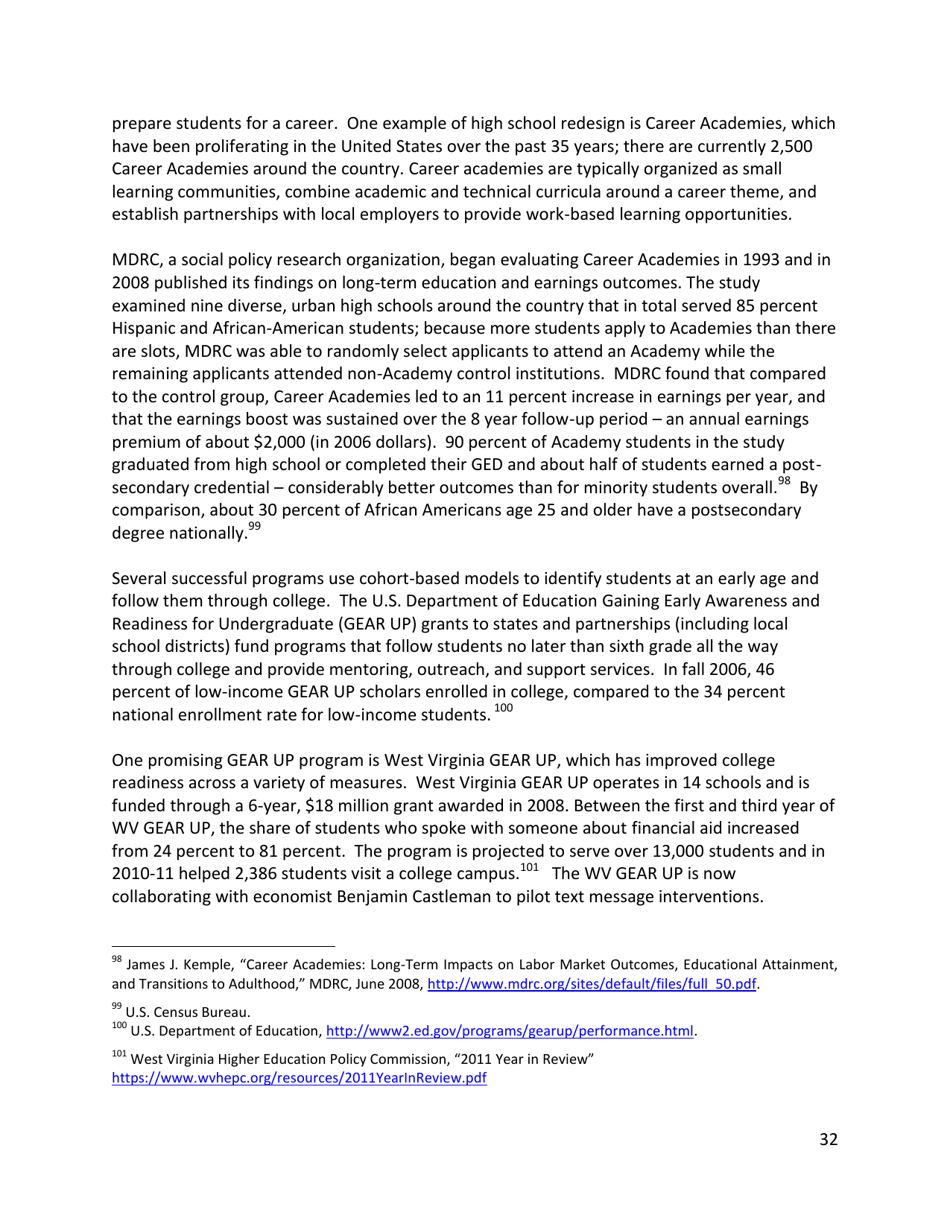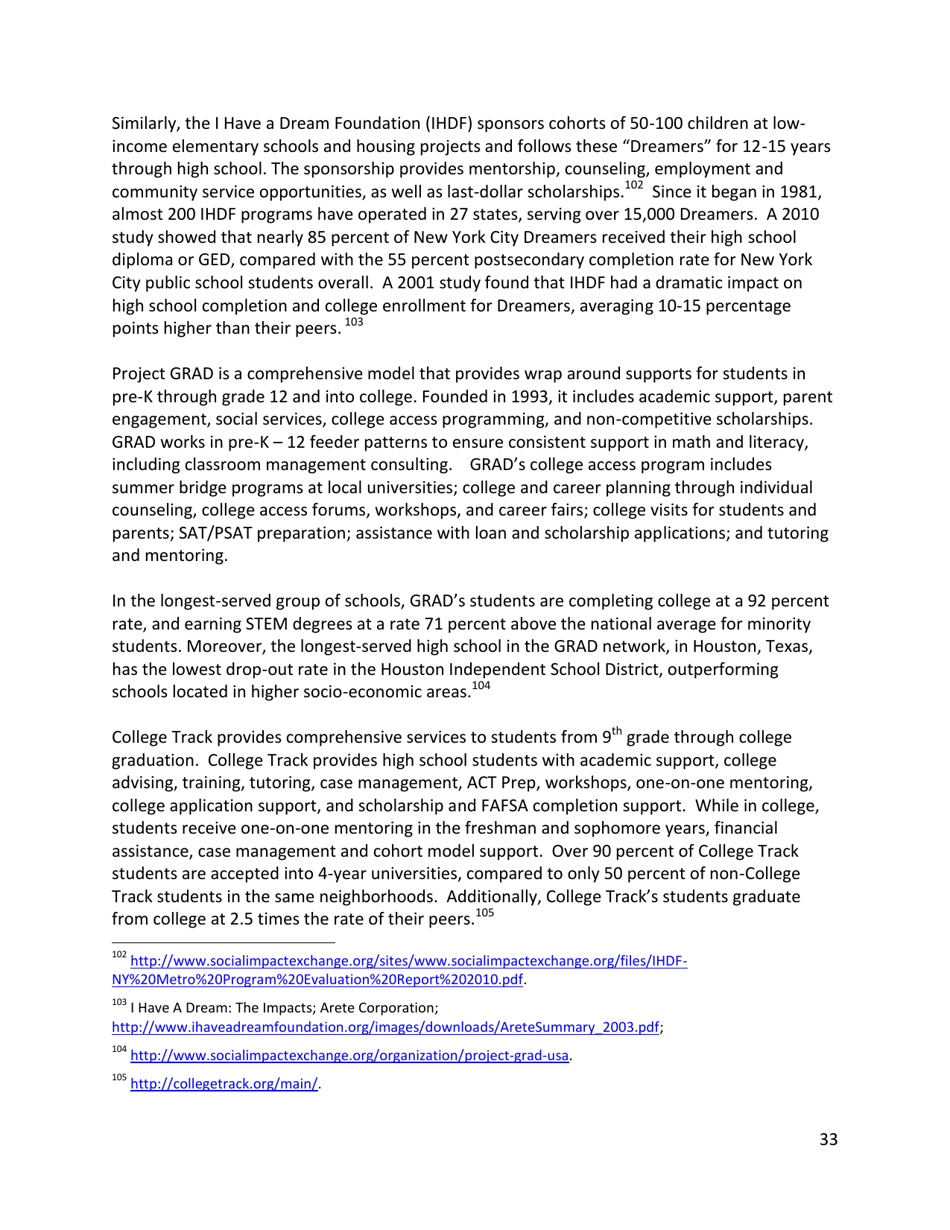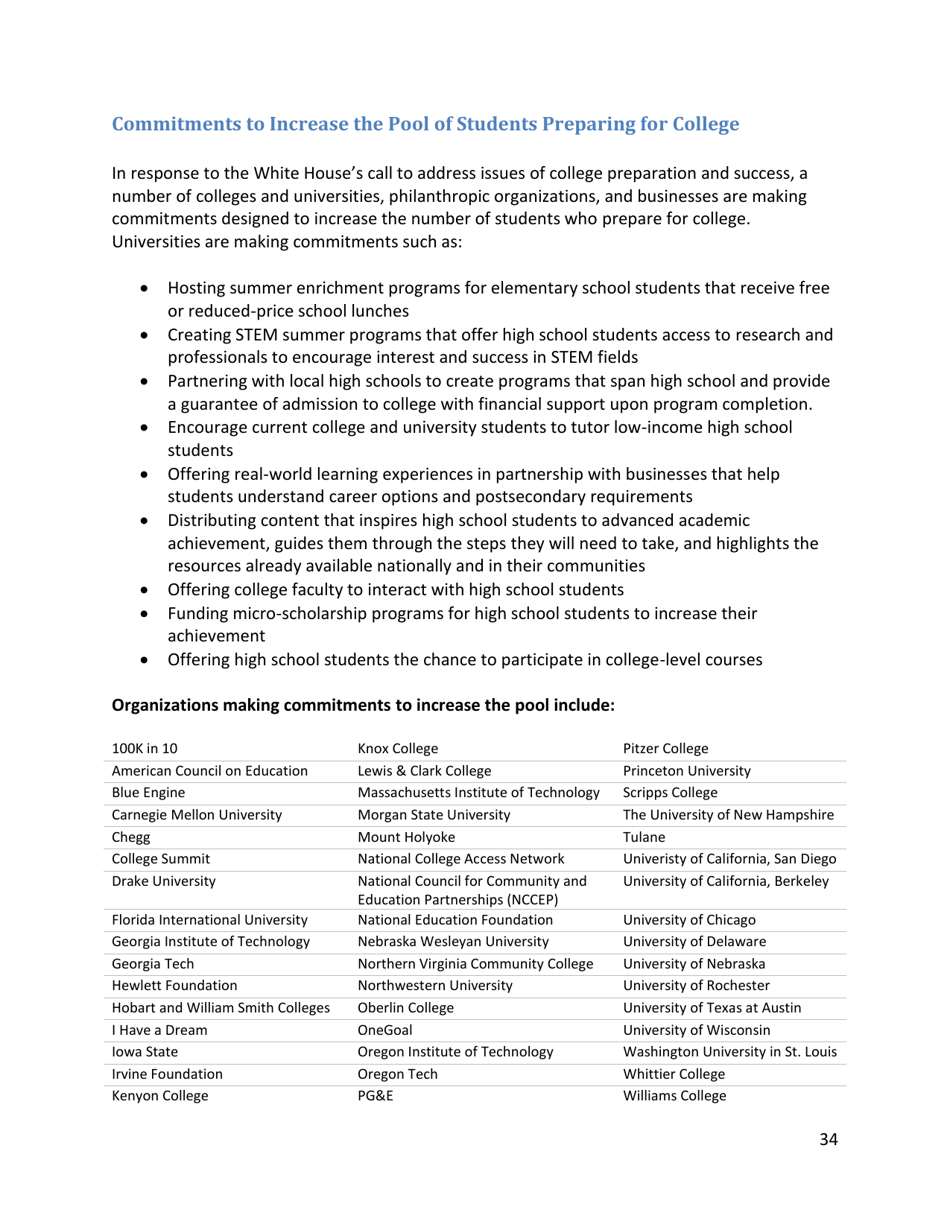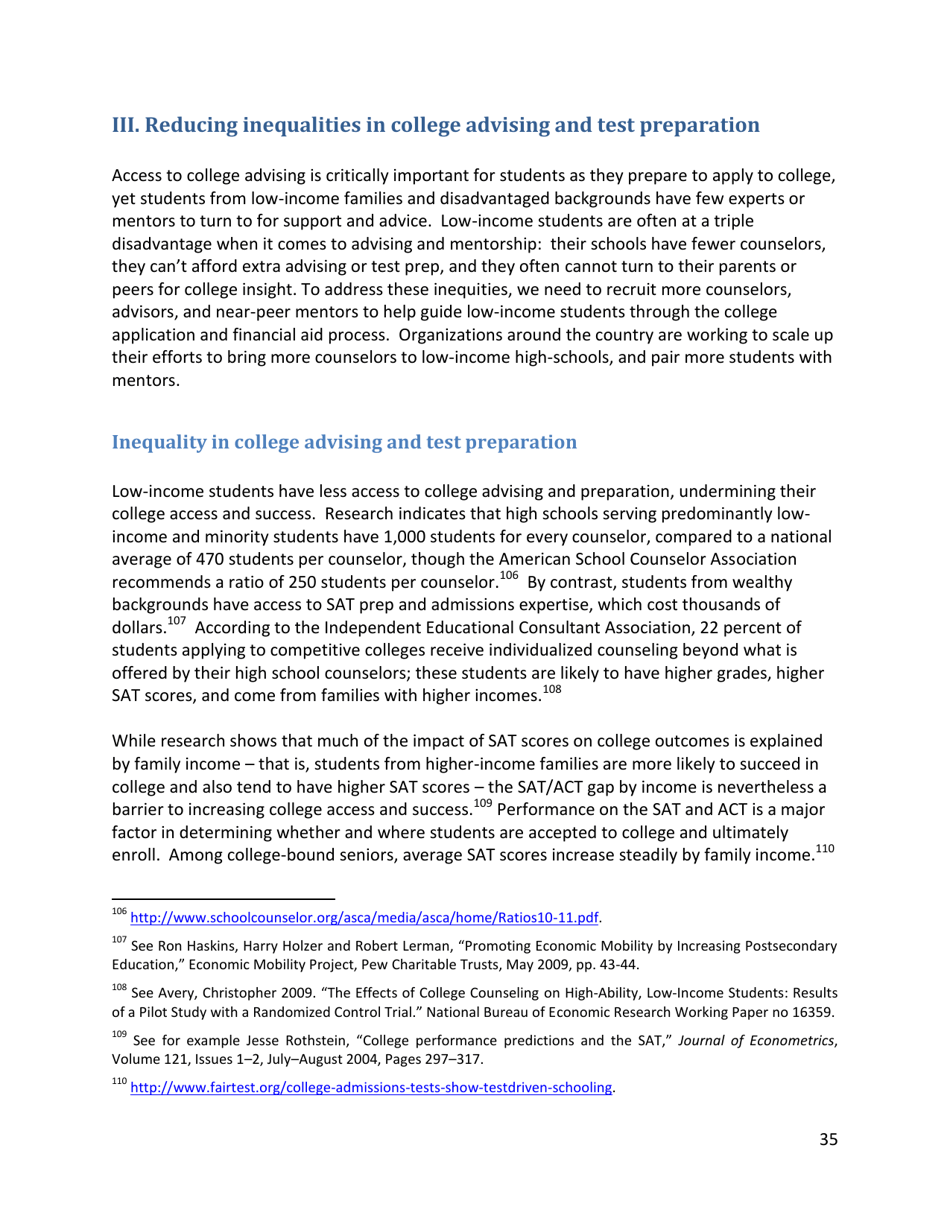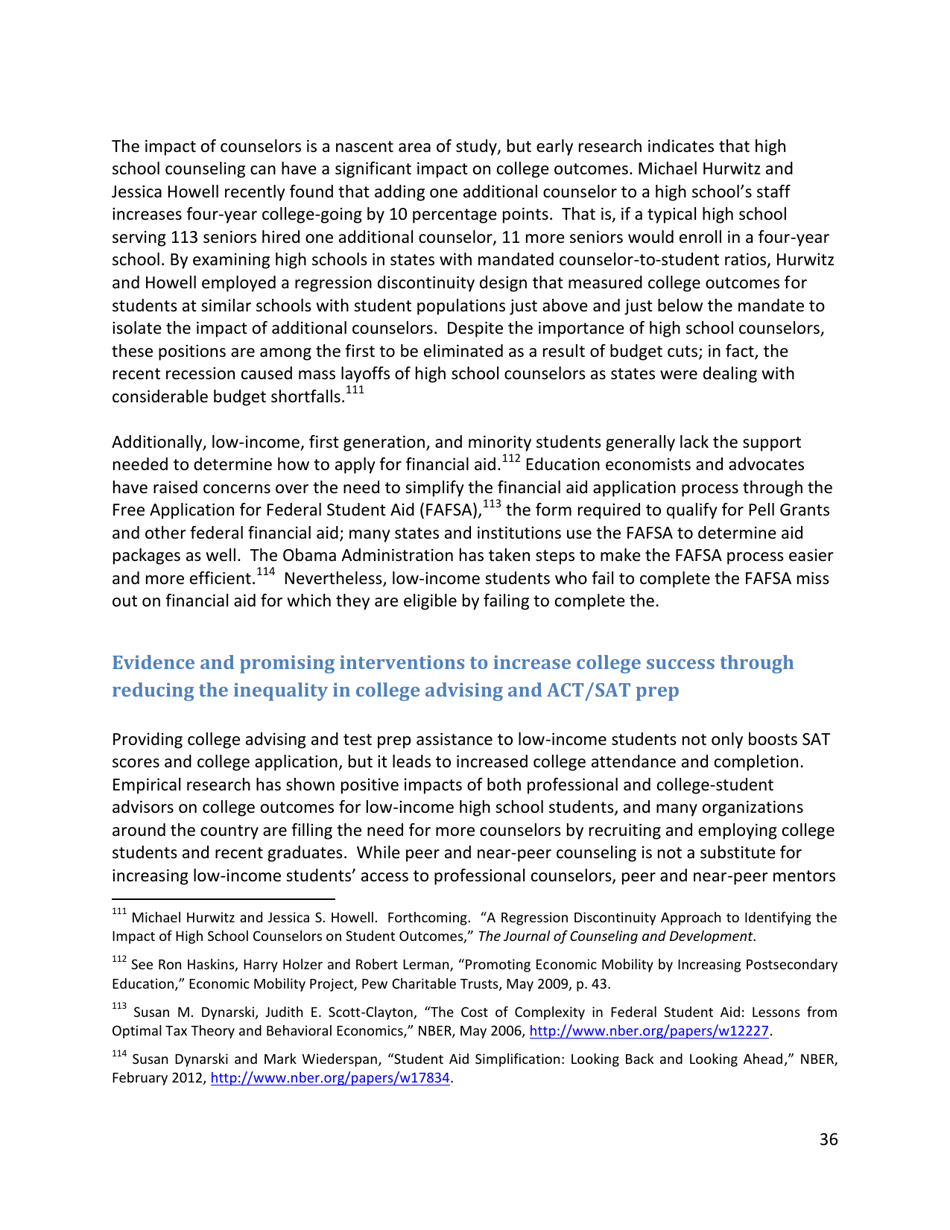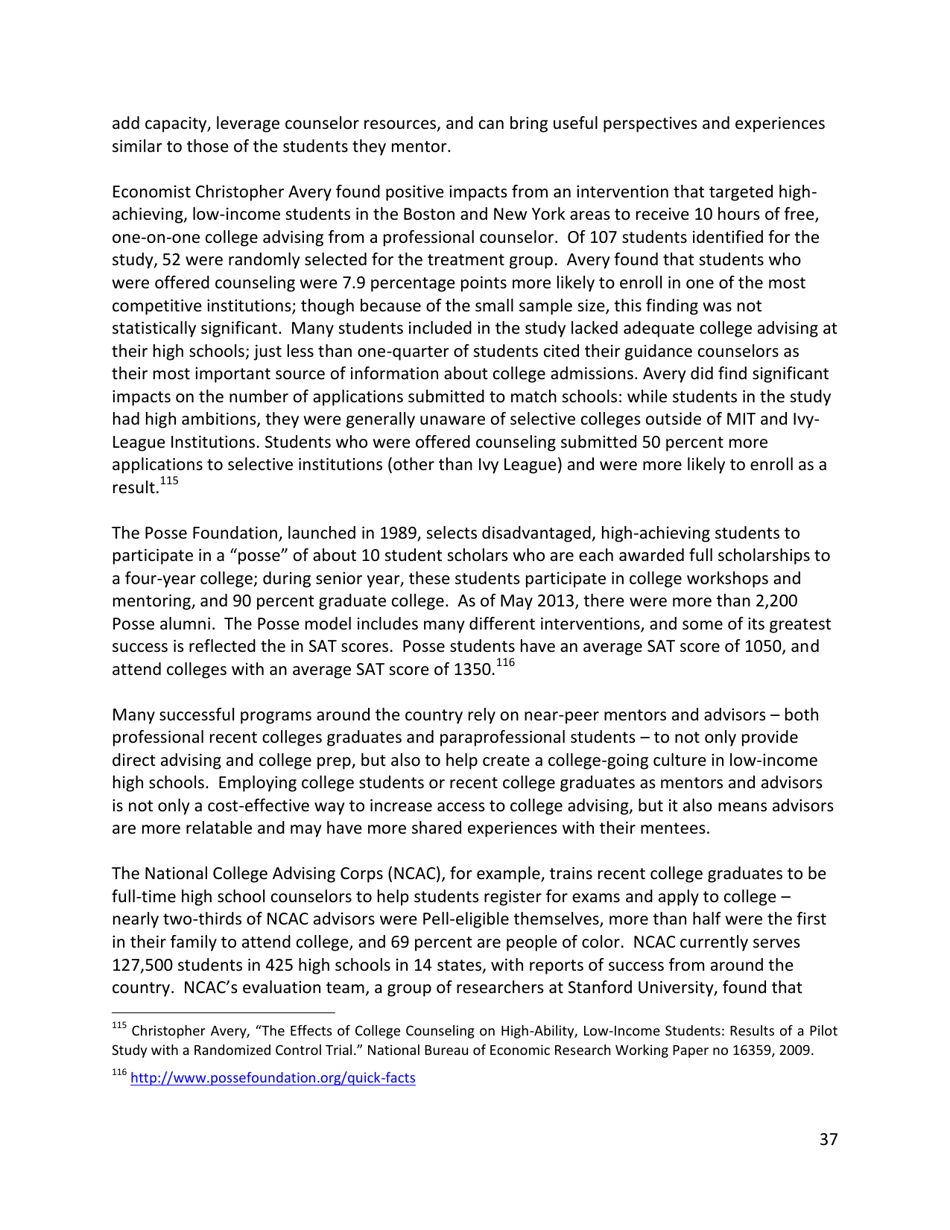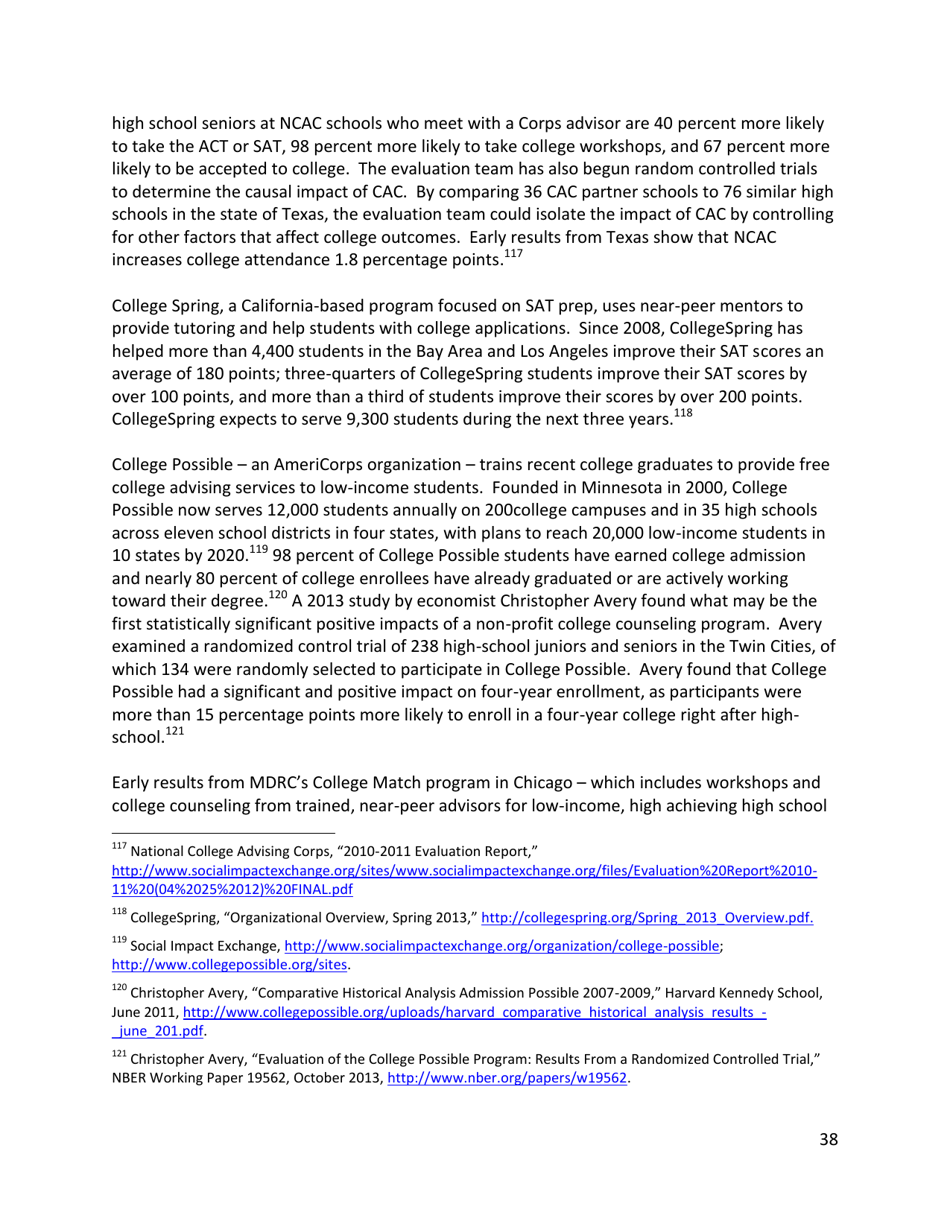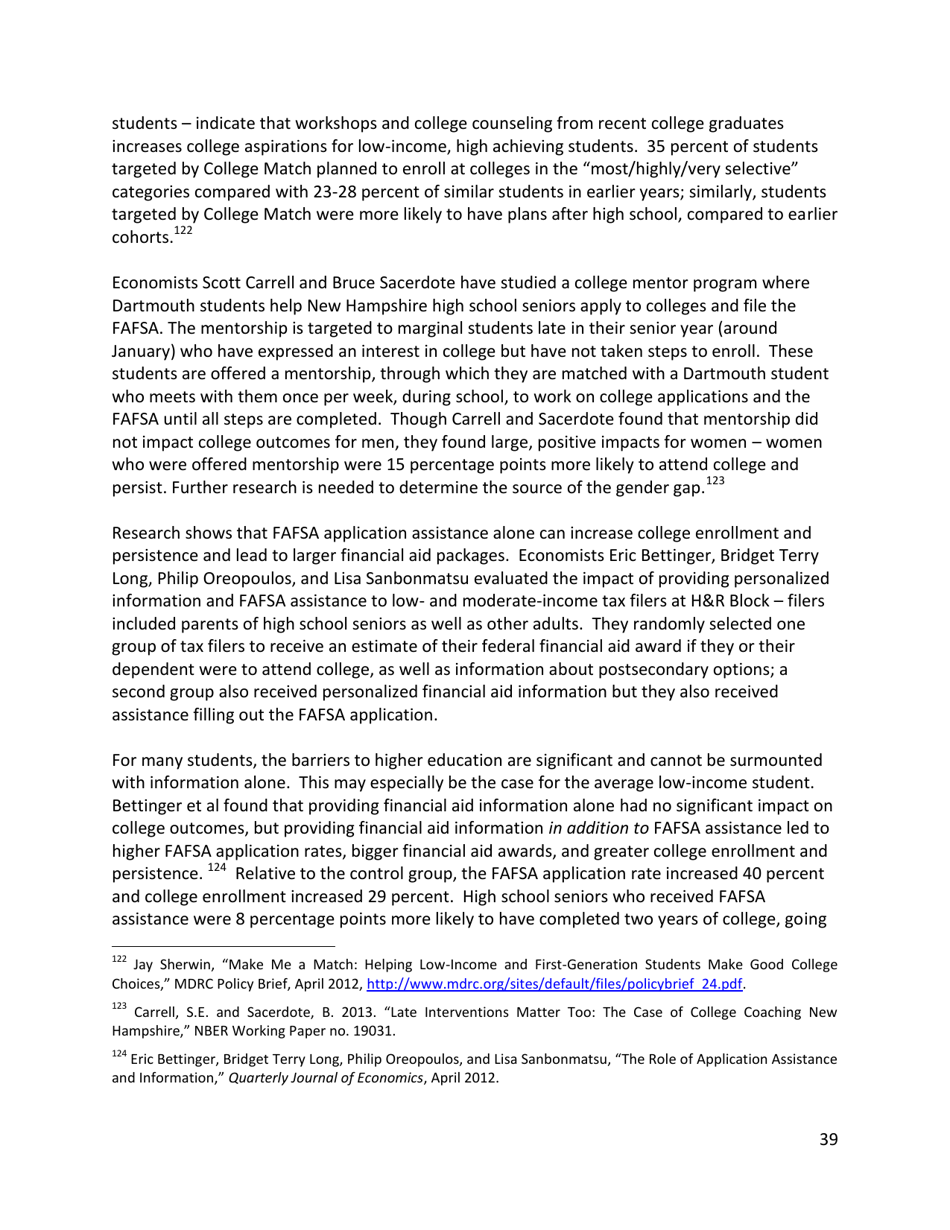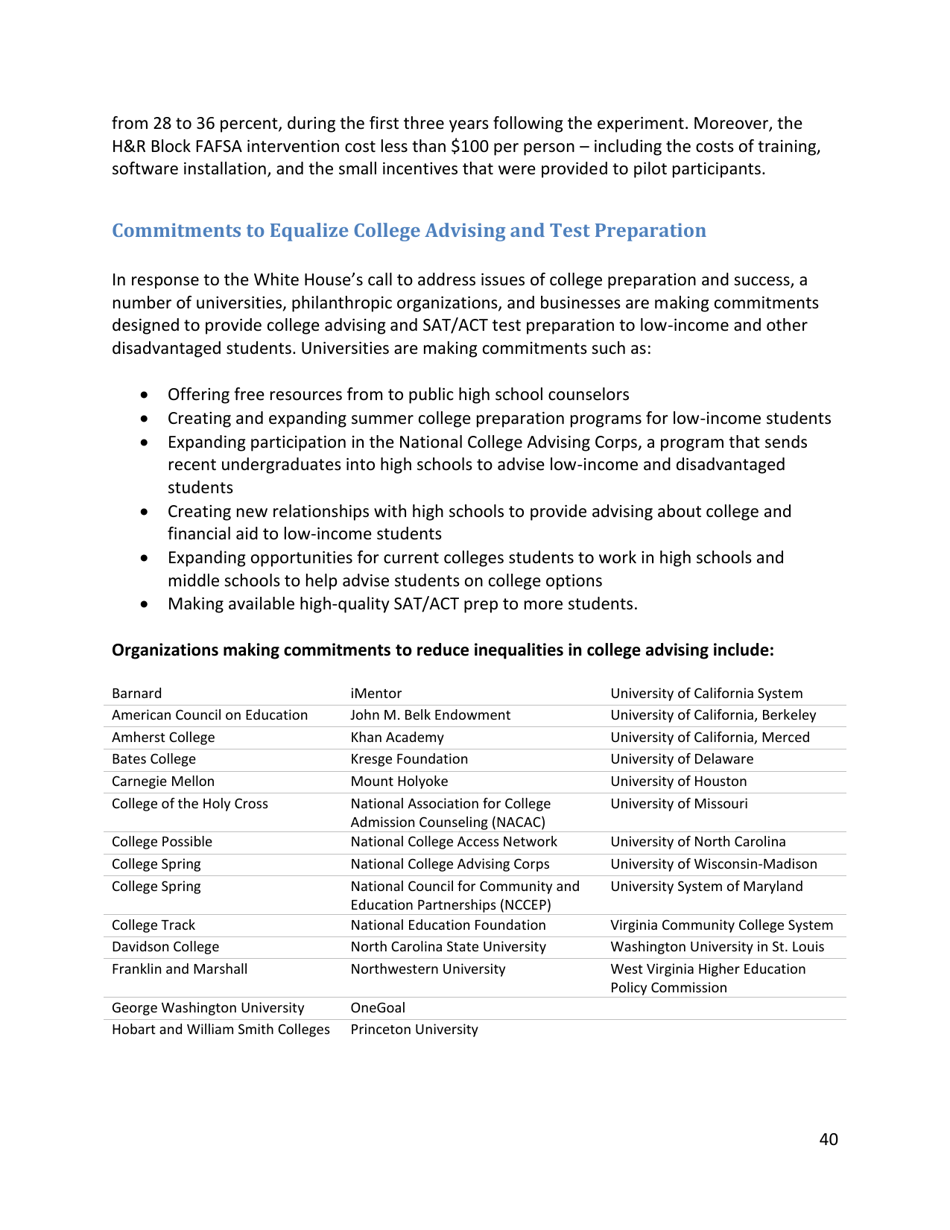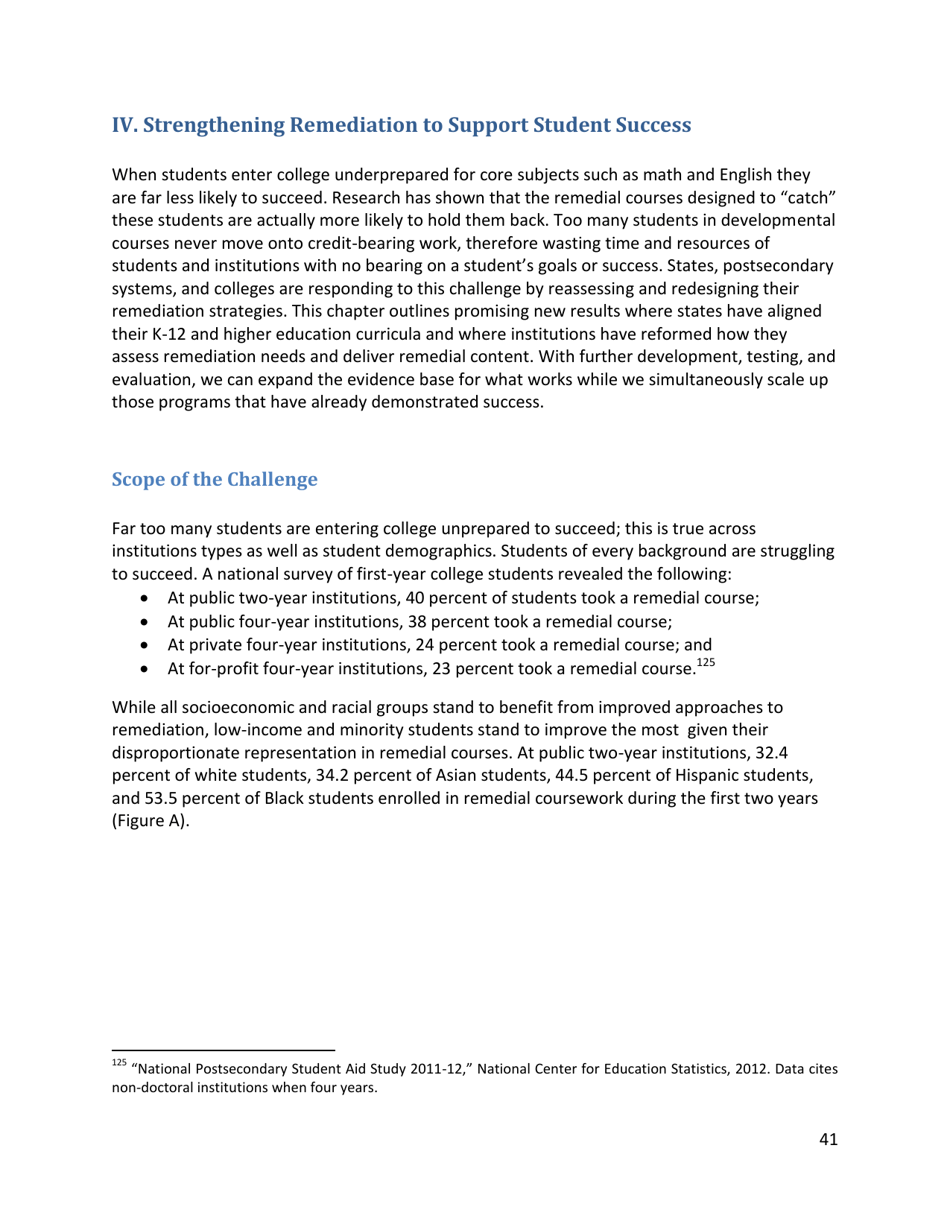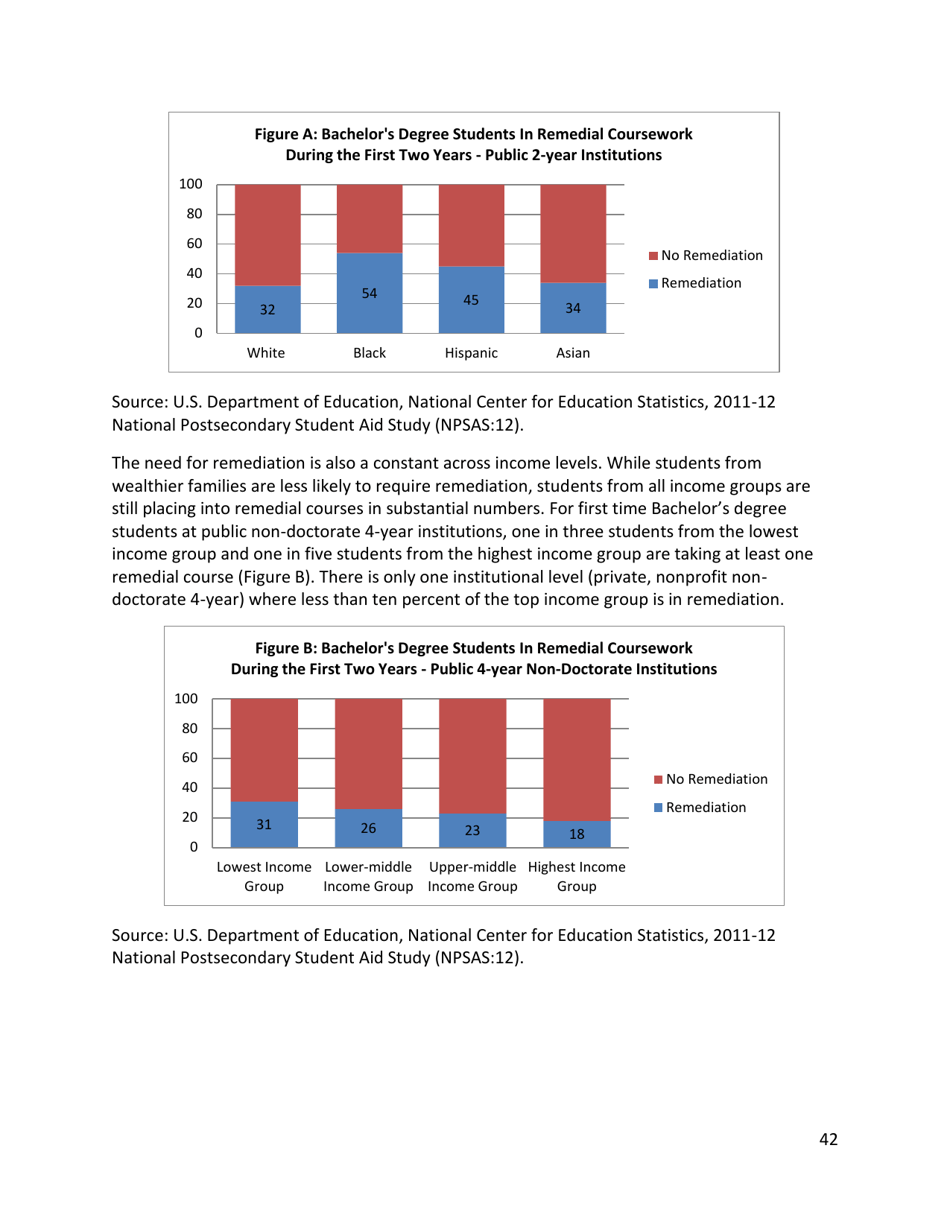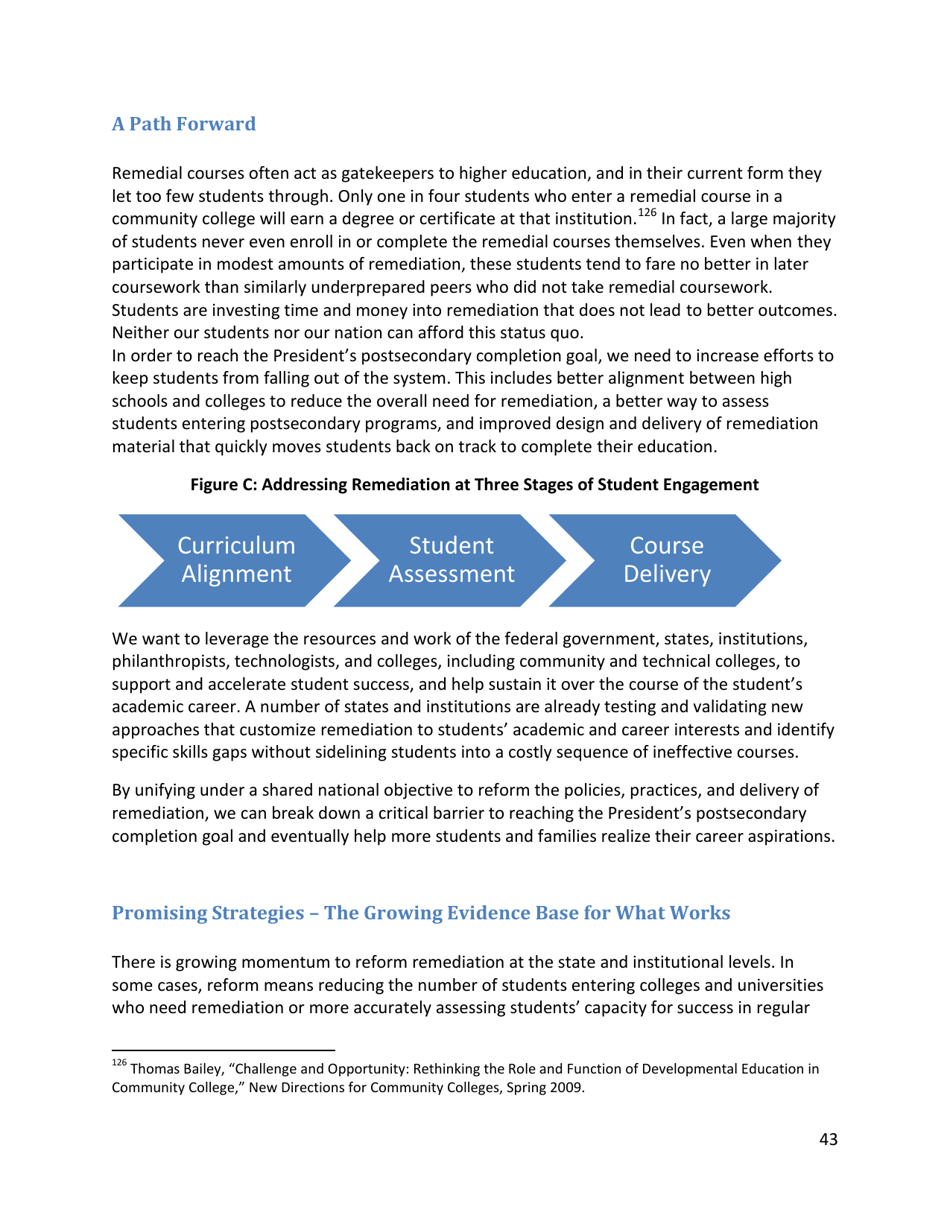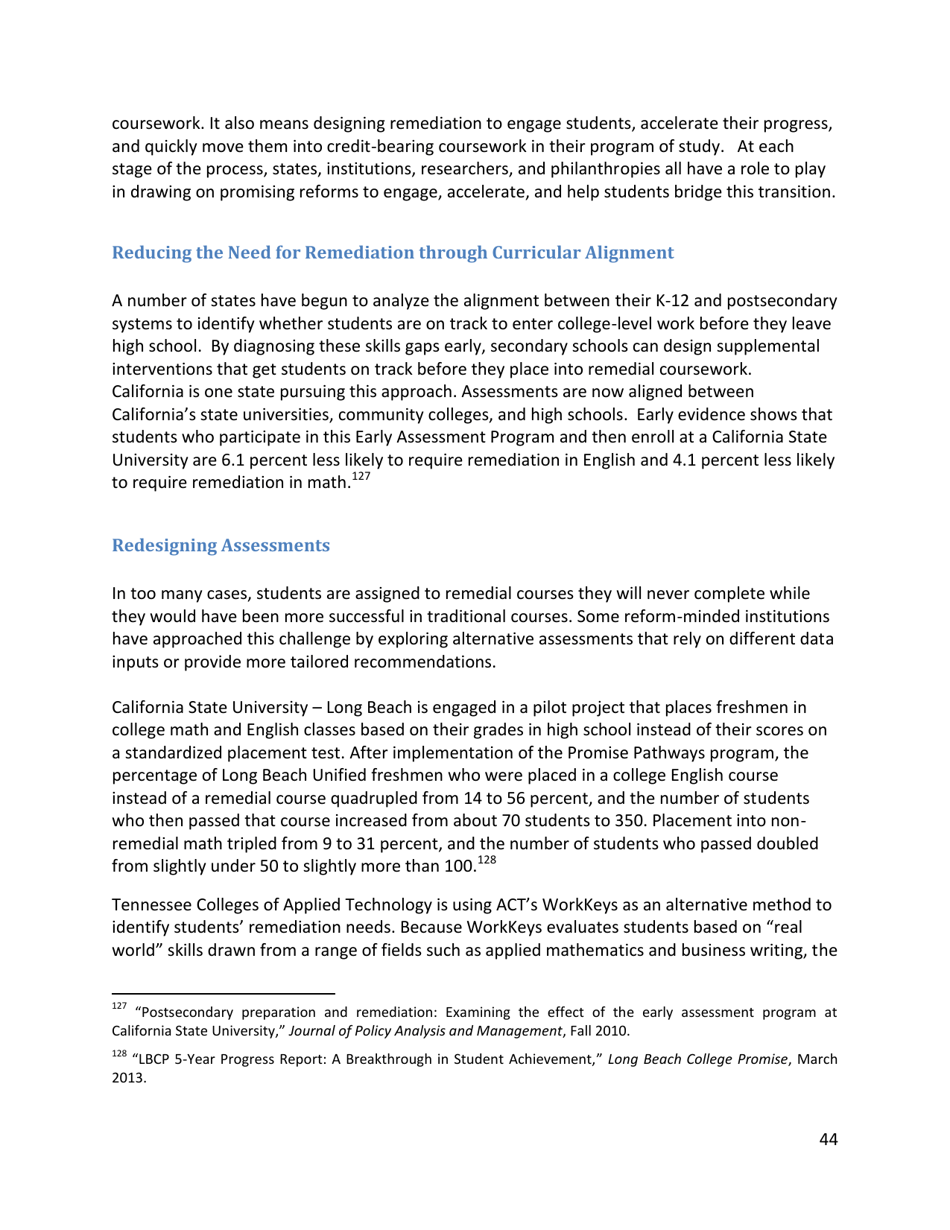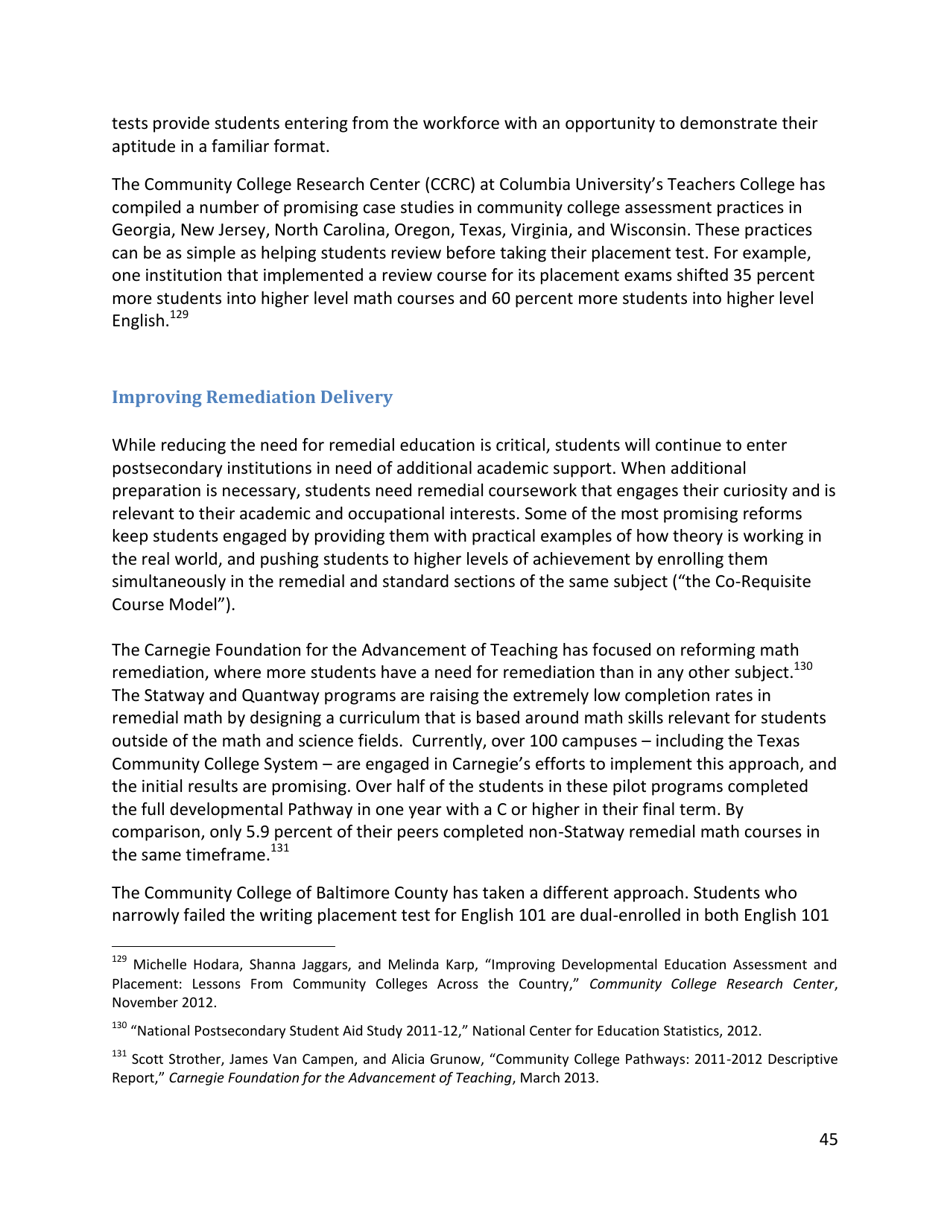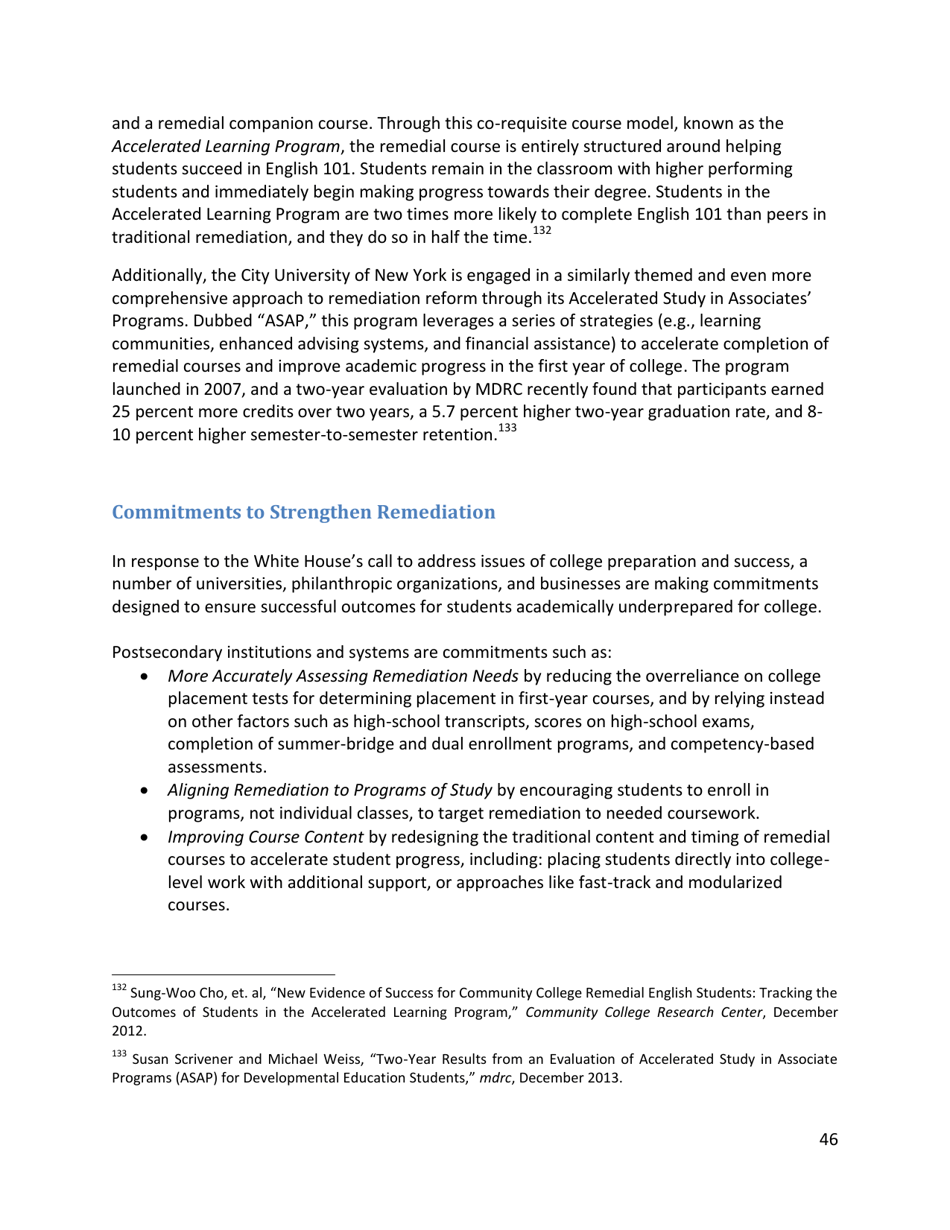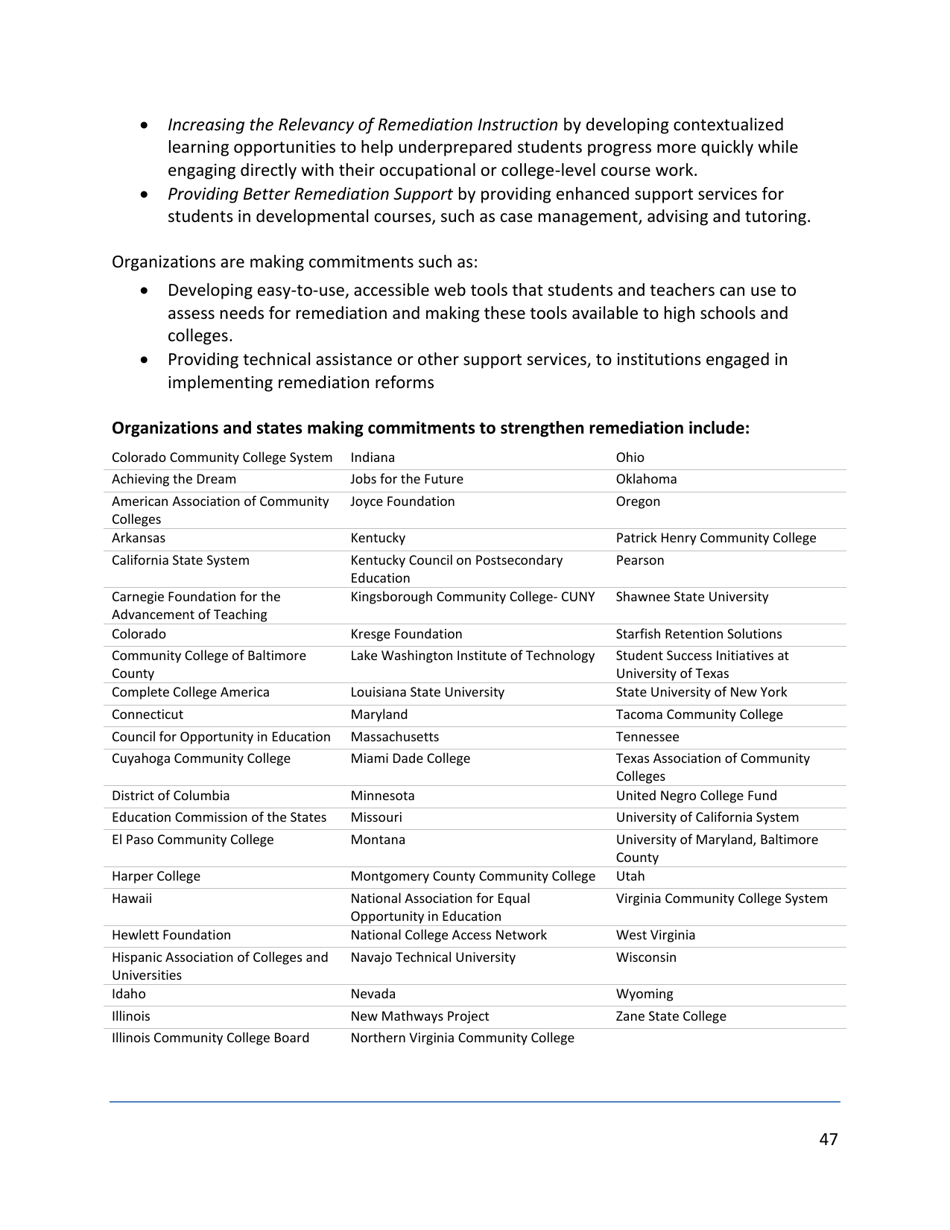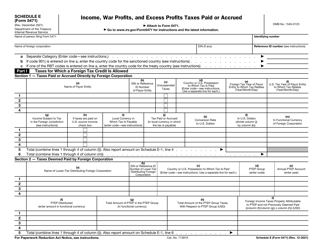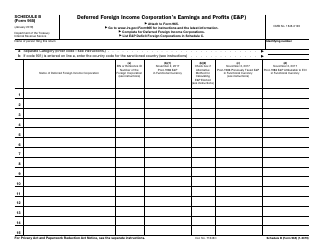Increasing College Opportunity for Low-Income Students
Increasing College Opportunity for Low-Income Students is a 47-page legal document that was released by the Executive Office of the President of the United States on January 1, 2014 and used nation-wide.
FAQ
Q: Why is increasing college opportunity for low-income students important?
A: Increasing college opportunity for low-income students is important because it helps to address educational inequality and provide equal access to higher education.
Q: What are some barriers that low-income students face when pursuing higher education?
A: Low-income students often face barriers such as financial constraints, lack of resources and support, limited access to information, and a lack of representation and diversity in higher education institutions.
Q: How can college opportunity be increased for low-income students?
A: College opportunity for low-income students can be increased through measures such as financial aid programs, scholarships, mentoring and support programs, outreach initiatives, and efforts to improve college awareness and readiness.
Q: What are some examples of financial aid programs for low-income students?
A: Examples of financial aid programs for low-income students include Pell Grants, need-based scholarships, and loan forgiveness programs.
Q: What is the role of mentoring and support programs in increasing college opportunity for low-income students?
A: Mentoring and support programs play a crucial role in providing guidance, resources, and support to low-income students, helping them navigate the college application process, academic challenges, and career planning.
Q: Why is it important to improve college awareness and readiness among low-income students?
A: Improving college awareness and readiness among low-income students is important because it helps them make informed decisions about higher education, prepares them for success in college, and increases their chances of enrollment and completion.
Q: How can outreach initiatives contribute to increasing college opportunity for low-income students?
A: Outreach initiatives can contribute to increasing college opportunity for low-income students by actively engaging with communities, providing information about college options and financial aid, and encouraging college aspirations.
Q: Why is diversity and representation important in higher education institutions?
A: Diversity and representation are important in higher education institutions because they promote a more inclusive and equitable learning environment, foster diverse perspectives and experiences, and contribute to a stronger society overall.
Q: What are some success stories of low-income students who have overcome barriers to pursue higher education?
A: There are numerous success stories of low-income students who have overcome barriers to pursue higher education, such as first-generation college students who have graduated with honors, received scholarships, and gone on to successful careers.
Q: What can individuals and communities do to support increasing college opportunity for low-income students?
A: Individuals and communities can support increasing college opportunity for low-income students by volunteering as mentors, advocating for policy changes, raising awareness about available resources, and supporting organizations that work towards educational equity for all students.
Form Details:
- The latest edition currently provided by the Executive Office of the President of the United States;
- Ready to use and print;
- Easy to customize;
- Compatible with most PDF-viewing applications;
- Fill out the form in our online filing application.
Download a printable version of the form by clicking the link below or browse more legal forms and templates provided by the issuing department.
